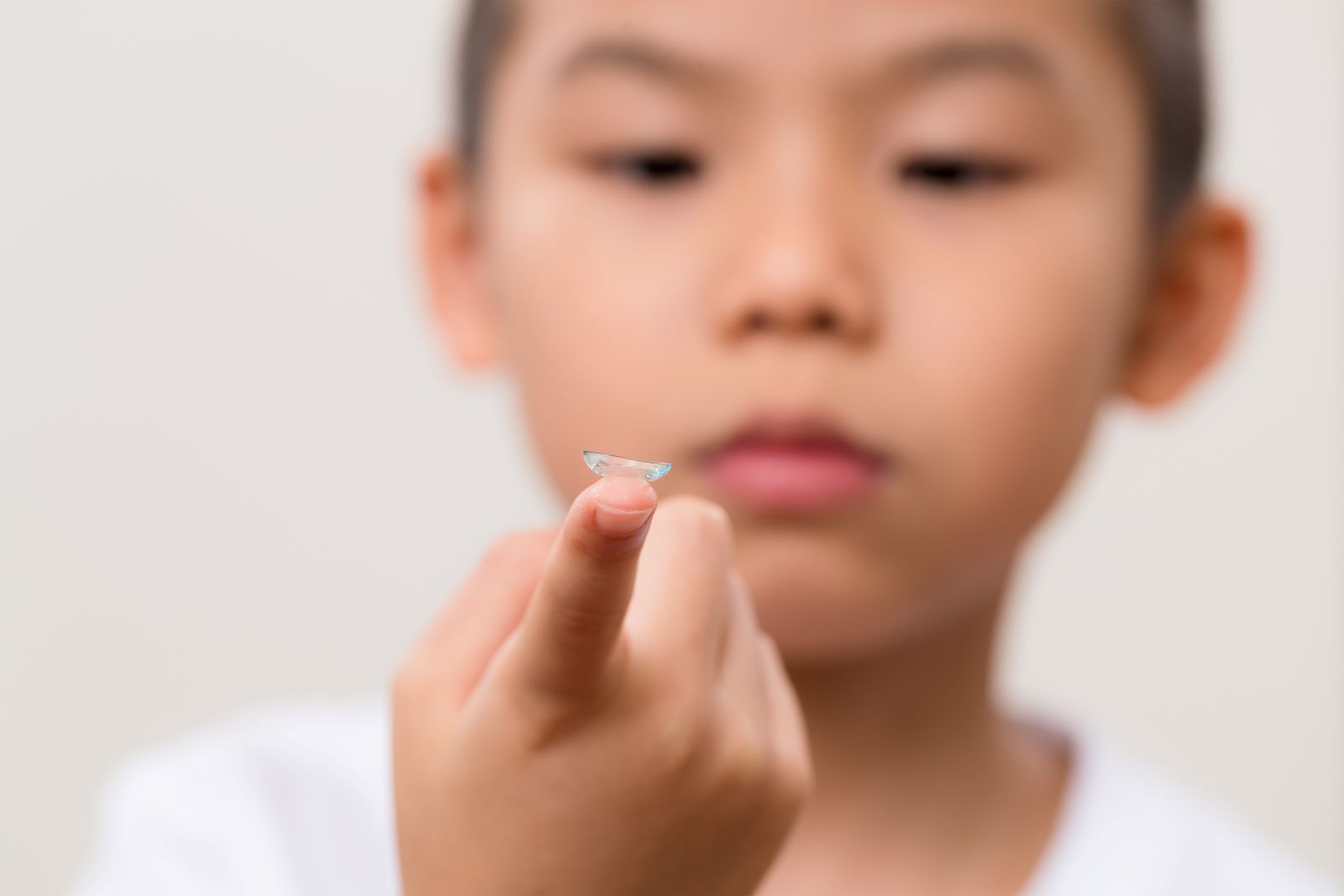We talk a lot about contact lenses for adults, but for those of us
with little ones, do we know if lenses can be worn for children? The answer is
yes, but it is not so clear cut. Contact lenses for children depend on a few
different factors, as opposed to a set recommended age. We will talk about the
different factors below to help inform your decision if contacts are indeed the
right choice for your child.
Required responsibility
If we compare contacts to wearing glasses, we can say that using
contacts requires more work and responsibility. There is a stronger emphasis on
practising good hygiene, especially with incorrect use of lens wear which can
increase the risk of infection. Because of this, it is important to assess if
your child can handle the responsibility of looking after lenses. Making this
decision can be based on the attributes of your child. Is your child good at
taking care of things in their possession, do they learn instructions well, or
do they need constant reminding to do things? All these can determine whether
your child is ready to carry the responsibility of wearing contact lenses.
Willingness to learn
Practising good hygiene is something we learn from a young age,
and even as adults, we can sometimes forget to appropriately care for our
lenses. Younger children are more prone to poorer hygiene habits, however,
children are also eager learners, and if taught something from a young age,
they are able to master it faster, and learn a set of skills to use in their
everyday world. If your child is eager to learn, and can understand the
importance of good hygiene, then teaching them how to use and care for their
contacts should not pose a problem.
Why it is a good idea for children to wear contacts
- It teaches children autonomy and helps to develop their
independence and agency over themselves. Building a child’s self-confidence is
a big part of their development, and therefore taking on the responsibility of
looking after their contact lenses lets children feel confident about
themselves, and their ability to be responsible and organised.
- If your child is into playing sports, wearing contacts is much
safer for them as the lens allows for wider peripheral vision, and offers
vision stability in high active sports. Your child does not have to worry about
damaging their glasses, having them fog up, or needing to remove them.
- Not only do children feel more confident when they are looking
after themselves, wearing contacts can also build your child’s self-confidence.
Wearing glasses can inhibit children’s ability to play sport, interact
socially, or even affect their school performance. Some children feel too
self-conscious wearing their glasses and choose not to wear them, which can
lead to further eye strain, and lack of interaction- in class and out.
- Children produce better quality tears than adults, which means
less chance of having issues with dry eyes- a common problem with contact lens
wearers. Good quality tears make it easier for the lens to absorb moisture, allowing
the lens to remain soft and keep its shape. This reduces the risk of the lens
feeling uncomfortable and causing irritation to your child’s eyes.
What type of contact is best
The best type of contacts for children is daily disposables. As daily lenses are to be disposed of by the end of the day, it is easier for children to look after, especially if it is their first pair. However, with the right knowledge, experience, and level of maturity, children can learn to use bi-weekly or monthly lenses.
What parents need to know
- Before making the decision to give contacts a try for your
children, have a proper consultation with your eye practitioner to receive all
the information needed before proceeding.
- Inform yourself on the safe practices of correctly using contact
lenses if you do not already know. You cannot expect to teach your child how to
use them, if you do not know yourself.
- If your child struggles to insert and remove their contacts, you
may need to help them to place them in and take them out. However, it is your
responsibility to ensure your hands are clean to avoid contamination. If you
feel your child is not ready to be wearing contacts after trialling them, it is
up to you to make the decision to prolong until they are ready. Your child’s
eye health must always come first.
- Constantly be aware of how your child is dealing with the
responsibility of their contacts, and be prepared to supervise at all times. Provide
your child the space to be independent, but make sure you are always there to oversee
in case they are not caring for their lenses properly, or are needing a gentle
reminder to remove their contacts before bed.
- Inform your child’s teachers, friend’s parents, or other
responsible adults about your child’s contact lenses, and what to do if there is
an issue in your absence. Informing others helps to protect your child, and
offer a layer of support if needed.
Overall, contacts can be a wonderful option for children if they
are prescribed that they need them, and are educated on the correct usage and
care. But be reminded that contacts are not for everyone. Children develop in
various stages, and possess different characteristics, not all suitable for
wearing contact lenses. It is up to us to make informed decisions that will
prioritise our child’s health and wellbeing.


Leave your comment
Note: HTML is not translated!